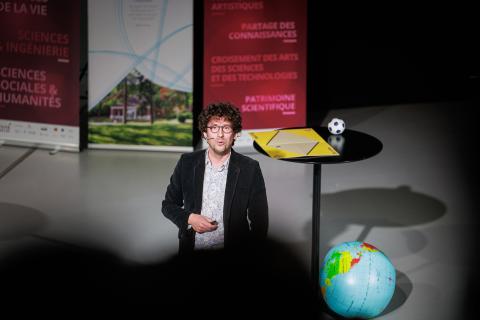
Hugo Duminil-Copin meets students from the area, in the places where he grew up
On 19 and 20 April, over 500 secondary and high school students from the Massy area (Essonne) had the opportunity to meet Hugo Duminil-Copin, a professor at the Institut des Hautes Etudes Scientifiques (IHES) and the University of Geneva, and Fields 2022 medal winner, at two talks specially organised for them in the region. The talks were a blend of personal history and motivations, the playful and creative aspects of mathematics, and overturning preconceived ideas. All this was a source of great pleasure for the young participants and the teaching staff present.
